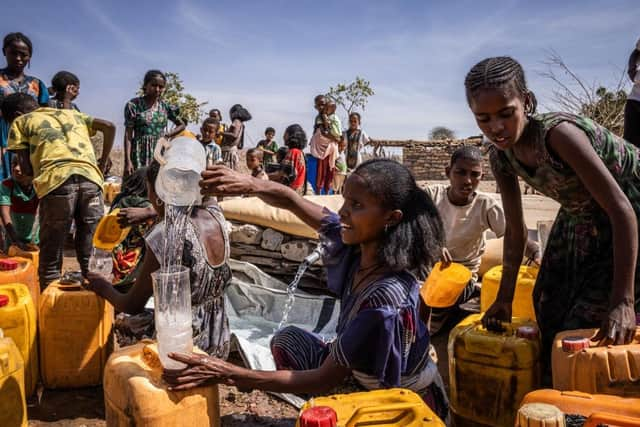Ethiopia: Funding target not reached as charities warn of impending famine
A funding drive to help ease a looming famine in Ethiopia has fallen short of its $1 billion [£800 million] target, with charities warning of a “dire situation” in the region.
The High-level Pledging Event for the Humanitarian Situation in Ethiopia, co-hosted by the UK, the Ethiopian government and the United Nations in Geneva, raised $610m [£491m].
Advertisement
Hide AdAdvertisement
Hide AdMore than 91 per cent of the population of Ethiopia’s Tigray region is at risk of starvation and death, the area’s Interim Regional Administration has warned – and more than 20 million Ethiopians are in need of food aid.


A deadly civil war that displaced millions, destroyed essential infrastructure and health services, and is estimated to have claimed the lives of upwards of 600,000 people raged in Tigray from November 2020 for two years. At the event, the US pledged the highest amount, at $243m [£196m], and the UK $125.5m [£101m].
Tinebeb Berhane, country director at ActionAid Ethiopia, said: "The UK government's pledge, the second largest at the High-Level Pledging Event on Humanitarian Response for Ethiopia, is a step forward. Yet Geneva's outcome falls short of addressing the crisis's magnitude. Ethiopia, flagged by humanitarian watchdogs, faces escalating multi-faceted humanitarian needs for the third consecutive year.
“The pledged amount didn't meet the $1bn target, and leaves uncertainty about how "new" the funding allocated is. The international community must fulfil its promises to effectively support Ethiopia through this dire situation."
Speaking at the summit, Mike Ryan, deputy director-general of the World Health Organisation (WHO), told delegates of cholera and malaria outbreaks in the country.
He said: “WHO and our health partners, the health cluster, are on the ground, providing life-saving health services. But without urgent funding we cannot simply continue. Instead of maintaining the scale up to respond to the worsening health and food security emergency in Ethiopia, WHO is forced to scale down due to funding shortfalls.”
The UN’s Office for the Co-ordination of Humanitarian Affairs (UNOCHA) said despite continuing investments by the Ethiopian government to build the resilience of vulnerable communities and implement development programmes, the country continued to face recurrent humanitarian challenges resulting from climate-related disasters, conflict and other challenges.
Comments
Want to join the conversation? Please or to comment on this article.
